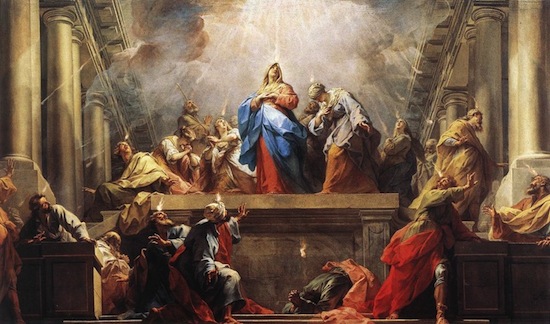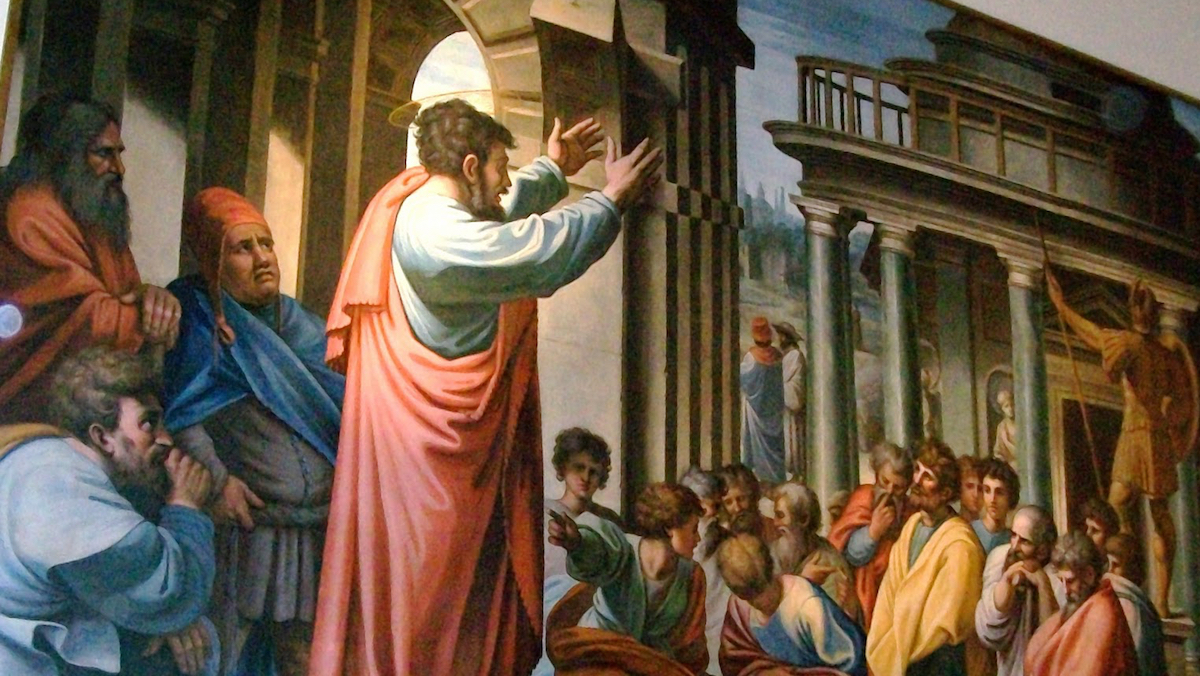
The Gospel account (Luke 18:9-14) for the 30th Sunday in Ordinary Time is famous, one with which we are all familiar. It tells the well-known story of the sinner who sat in the back of the Temple beating his breast while seeking mercy and the Pharisee who sat up in front reminding God what a laudable and holy person he is. The “holier than thou” argument is often used as an excuse by those who don’t go to church in order to criticize those of us who do, calling us hypocrites. But the story goes much deeper than the comparisons people make between themselves and others. The parable deals with our perception of who we are in the eyes of God.
This parable reaches to the core of our relationship with God. We need to understand that the basis of that relationship is the fact that God chooses us. He establishes the relationship. We haven’t won this relationship with our prayers, or our actions. God has chosen us. This has not been easy for many to accept. Taking on our humanity and becoming one of us in His Incarnate Son, God’s effort has been directed toward all of us. The extent of His love for us is proven through His sacrificial love for all of us displayed on the Cross. The struggle also includes the Lord’s continual effort through His Son to win each of us into His love. So often, however, you and I have run from Him.
Perhaps we fear that His love for us is too demanding. Maybe we’re afraid that getting close to God means we have to give up all of the fun things in life. Maybe we’re afraid He will ask us to give up things that we feel we simply just can’t give up. Or… maybe it’s a control issue. Do I control my life, or should God govern my life? Our motives are many and complex, God’s motive is simple and uncomplicated.
In our relationship with God each one of us has been gifted with God’s love, a love flowing to us through our family of faith, the Church. Yet at the same time His love is, because we are individuals, unique to each one of us. I stand before God’s eyes all by myself. Each one of you has his or her own unique and individual relationship with God. By that I mean that someone is not better or worse than another person in the eyes of God. God sees you as you, not in comparison with someone else. Take, for example, your own relationship with your own children. Each of your kids is not better or worse than each other. To be sure, they are different, yet all of your children, each and every one, receive all of your love.
And so it is with God. We are all God’s children. Yet God sees us and loves us individually. He doesn’t judge us as better or worse than another person. Our actions and behaviors may be good or bad but we are all God’s children and He loves us all as His children.
One of the ways that we tend to avoid accepting responsibility for our actions is to contrast ourselves with those whose actions appear to be worse than ours. The Pharisee thought: “Look at that guy; he is a sinner and a tax collector. At least I’m better than him.” Is that any different than the thought, “Look at that guy, he’s a drug addict. At least I’m better than him.”
Thank God for your own goodness, but at the same time realize that God sees into the hearts and souls of each of His children. He looks into our hearts and He sees all those hidden forces that have pushed us in one direction or another. He sees the times that He has directly intervened in our lives offering us His presence. And He sees the times that we have accepted His presence and the times that we have told him, “Not now… Not in this matter… Maybe later. You are asking too much.” He judges us as individuals. He is not concerned with who is better than whom. He is only concerned with how well we each individually respond to His love, what we as individuals has done with the gifts He has given us.
Catholicism is often accused of putting people on guilt trips. That is not true. Catholicism puts people on reality trips. Catholicism dares to speak about unpopular topics like sin. Catholicism dares to invite people to consider their own participation in sin and seek God’s forgiveness. Is this really a guilt trip? Or is it a reality trip? I firmly believe that Catholicism fosters a realistic approach to living. It recognizes that our salvation is a process we are engaged in. We are not saved yet, we are being saved. Catholicism recognizes that we are human beings and that we can, because we are wounded, give in to temptations to sin. It tells us that the Lord was one of us and that He experienced temptations and that He understands our need for mercy. He gave us the Sacrament of mercy, the Sacrament of Forgiveness, because He wants His mercy, not our guilt, directing our lives.
Catholicism is not concerned with guilt, it is concerned with mercy. So many times I have had people tell me how much they need the loving mercy of God. They are realists. We all need the mercy of God. As we come to a deeper understanding of all that God has done for us, we also come to a deeper understanding of how much we need His mercy and forgiveness. The greatest saints are people who see themselves as great sinners because they have a profound realization of the extent of God’s love for them and the many times they have not returned His love.
The Orthodox and Eastern Churches have favorite prayers that are like mantras, simple and repetitive. They help us to pray constantly… many, many times throughout each and every day. One such prayer is called The Pilgrim’s Prayer. It is simple and yet profound: “Lord Jesus Christ, Son of the Living God, have mercy on me a sinner.” It was the prayer of the man in the back of the Temple who realized he was totally dependent on God’s love, a love that he had often rejected. The pilgrim’s prayer is a prayer that we all need to say within our hearts throughout our day.
A Pharisee and a tax collector come into the Temple. Both are there to pray. Only one is humble enough to recognize his need for the healing hand of God. He is the one who truly prays because he realizes how much he really needs God. He is the one who leaves the Temple with God’s arms around him. The Pharisee leaves having nothing but his own self-satisfaction. The tax collector leaves with a great treasure: the love of God in his heart.








